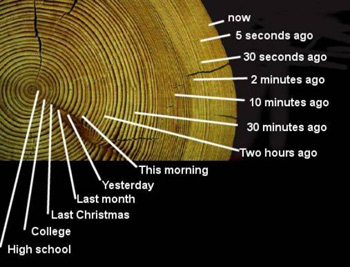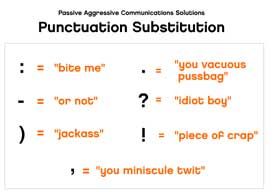Faculty Development News This Week
What a way to start off the week:

I include this album cover for the great photo; I have no idea about the quality of the music.
Photo acquired from Dwayne and Shadow
Conferences
--World Conference on Educational Multimedia, Hypermedia & Telecommunications,
Montreal,Canada June 27-July 2, 2005
This annual conference serves as a multi-disciplinary forum for the discussion and exchange of information on the research, development, and applications on all topics related to multimedia, hypermedia and telecommunications/distance education.
For more information, visit the Web site:
World Conference on Educational Multimedia
Publishing
--Call for Articles: Academic Exchange Quarterly
Focus: Two -Year / Community Colleges
The research and scholarship on community colleges continues to be a growing and developing area. Those individuals who participate in the daily goings on of the community college have rich voices that can add much to the ongoing dialogue. The general goal of this special issue is to provide a rich dialogue of intersecting voices from the community college arena. A secondary aim of this topic will be to assemble scholarly papers that focus on summarizing the beliefs and perspectives of those who often know the community college best, but write about it the least--its practitioners: faculty (both full-time and adjunct), its staff, its administrators, and its students (through empirical study). Contributions are envisioned, which range from original research to editorial perspectives. Heading "Two-Year Colleges" includes community colleges, technical colleges, junior colleges, accredited two-year proprietary schools, and branches of four-year colleges that focus on associate degree education.
Topics Of Interest:
Contemporary Issues in the Community College
Curriculum
Faculty Issues
Hot Topics (E.g., adjunct faculty, baccalaureate degree, developmental education, distance education and the new technologies, nursing shortage, service learning)
Multiple Missions
Leadership
Student diversity (E.g., ESL learners, racial and ethnic minorities, students with disabilities, reverse transfer students)
Teaching and Learning
Papers may be in the form of case studies, reflection papers, empirical research reports, or scholarly theoretical papers.
Who Should Submit:
Higher education faculty and graduate students, whose area of research focus and/or graduate study is the community college. Community college practitioners: faculty, staff, and administrators. Please identify your submission with keyword: COMMUNITY
Submission deadline:
Regular deadline - any time until the end of May 2005. All accepted submissions will be published in the Fall issue.
Short deadline - June or July. All accepted submissions will be published in the Fall issue or in later issues.
Submit early and have an opportunity to be considered for Editors' Choice and/or Monthly Exchange
Visit the Web site:
Knowledge Management / Libraries
--Unskilled and Unaware of It
Read the abstract for this article:
People tend to hold overly favorable views of their abilities in many social and intellectual domains. The authors suggest that this overestimation occurs, in part, because people who are unskilled in these domains suffer a dual burden: Not only do these people reach erroneous conclusions and make unfortunate choices, but their incompetence robs them of the metacognitive ability to realize it. Across 4 studies, the authors found that participants scoring in the bottom quartile on tests of humor, grammar, and logic grossly overestimated their test performance and ability. Although their test scores put them in the 12th percentile, they estimated themselves to be in the 62nd. Several analyses linked this miscalibration to deficits in metacognitive skill, or the capacity to distinguish accuracy from error. Paradoxically, improving the skills of participants, and thus increasing their metacognitive competence, helped them recognize the limitations of their abilities.
Read the article:
Unskilled and Unaware of It, Journal of personality and Social Psychology (December 1999).
I acquired this resource from hebig.org/blog, 5 November 2004.
--The Social Life of Paper
How transcribing on paper helps us think and manage information.
This article is a review of the book The Myth of the Paperless Office (M.I.T Press,2001) ISBN# 0262194643
This is from The New Yorker,25 March 2002.
Pedagogy

--E-Learner Producers: Microsoft's Director of Learning and Strategy Evangelism
Read these excerpts from Internet Time Group, a blog devoted to the business and implementation of adult education and technology. Jay Cross, the founder of Internet Time Group, has worked for the University of Phoenix.
Excerpts:
Microsoft is a significant player in IT learning, with 1800 partners worldwide, 9.6 million customers served, about a million training events in last 12 months, and 2.7 certifications granted.
Bob Mosher, Director of Learning and Strategy Evangelism, for Microsoft Learning, claims the learner population has changed. Learners are no longer "newbies"; they don’t want courses. Instead, today’s learners are building on foundation knowledge, not starting from scratch. They want to fill in the gaps, not take a course.
Read more:
I acquired this resource from OLDAILY
--Assessing Learning Outcomes in Online Education
This article promotes assessment involving third-party reviewers, attention to appropriate psychometric measures, and statistical tests of transformed qualitative data, which can lead to pedagogical insight,accurate assessment of traditional versus online learning, and opportunities for curriculum improvement.
Assessing Learning Outcomes in Online Education
This is a 26-page PDFfile.
--The eLearning Edge: Leveraging Interactive Technologies in the Design of
Engaging, Effective Learning Experiences
Read the abstract:
Interactive technologies are sometimes considered a panacea for a wide variety of learning objectives, when in reality they are really most relevant to particular needs. In fact, interactive environments often allow for learning experiences that are difficult to achieve in traditional environments.
This paper considers when eLearning might be most appropriate as part of a blended solution and which specific interaction types might be most suitable for different objectives.
Keywords: eLearning, learning, interactive, interaction, games, simulations, collaboration, constructivist, education, learning theory, training.
This is a 10-page PDF file.
--IdeaFisher: Creativity and Mind-Mapping Blog
Although this is a commercial site for IdeaFishing, a corporation in Vancouver, Washington, it still has valuable links and information regarding creativity, problem-solving and mind-mapping. There are free downloads, too.
Creativity and Mind-Mapping Blog
--How Weblogging Helps You Think Like a genius
Another reason to blog!
This is from the blog Dewayne and Shadoow
How Weblogging Helps You Think Like a genius
--Philosophical Toy World
Here is the introduction to this site:
The ideas expressed here have no wish to be well balanced, or even sane. They are a call to reinvest moving images with the marvelous , not through other worldly flights of imagery but through seeing the very production of the moving image in a new light. They are a cry for a multiplicity of "cinemas", past, present and future.
Like philosophical toys themselves, these texts and images are designed to be playful and provoke thought. Inspired in part by the education rebus books of the 19th century described by Walter Benjamin, in which wherever possible, nouns are represented by small illustrative pictures or icons. He notes that the word rebus can be traced back not to res (thing) but to rêver (to dream). Here conceptual constellations, will project you on a journey crisscrossing a host of parallel cinemas.
One marvel from the site:

Online Culture

--Being Analog
The author of this article, Jay Cross, considers digital vs. analog, especially in relation to education and learning.
Tempting quote:
Real life is analog. Situations are continuums, not just the extremes. There's a whole world between the poles.
--12 Variables for Understanding Online Communities
This article attempts to discuss some of the qualities that define virtual communities. Applicable to online course communities.
This is from Mindjack, 24 November 2003.
--Alpha Bitches Online: The Dog Genome for the Next Generation

This is an audio lecture by the intellectually provocative Donna Haraway, professor at UCLA.
The lecture was presented at the IV European Feminist Research Conference "Body Gender Subjectivity. Crossing borders of disciplines and institutions" that took place in Bologna, Italy, September 28 - October 1, 2000.
Tools
--Sxip
Read the overview for this open source platform:
Sxip Overview
The Sxip Network is a simple, secure and open platform for true digital identity. Sites that implement Sxip support are able to easily provide features like single sign-on and automatic form fill.
Sxip users gain control over their online identity, conveniently and safely navigating Sxip-enabled sites.
Website developers implementing Sxip benefit by being able to share a platform built on open standards and supported by open source tools.
--Video Postcard
This utility allows anyone with a camcorder, on a Windows machine can send a video recording in "seconds". If you do not have a camcorder, you can send an audio-only postcard.
--User Interface Test Resources
Enter a URL to see how well a site meets user interface specifications.
--Learner's Library
The Learner's Library is a simple and intuitive search tool that locates relevant material from a comprehensive list of current full-text academic journals and news sources and automatically generates the citations needed for their use in a term paper, article or coursepack.
--Word Press
WordPress is a blogging platform.
Wordpress's motto: Code is poetry. Valid XHTML and CSS.
--NotifyList
NotifyList is a free, one-way mailing list platform.
--DiaryLand
DiaryLand is a platform where you can create your own online diary. You can even lock it!
--SquidFingers
This site provides free background patterns for Web sites and blogs. If you do decide to use one, however, a If you do decide use one, a credit link back to Squidfinger's site would be appreciated.
Here is an sample of one of Squidfinger's background patterns:

--Google Scholar

Google's just launched 'Google Scholar', a new search engine looking up within scholarly literature, including peer-reviewed papers, theses, books, preprints, abstracts and technical reports from all broad areas of research.
In beta.
Students
--Learning: Generation Does Matter
This article discusses how age demographics should be considered when designing course material.
Learning: Generation Does Matter
--Has Growing Up Digital...Affected Skill Sets?
Although this article is geared toward educating and training military personnel, it is applicable to any educational setting for Generation X students.
Has Growing Up Digital...Affected Skill Sets?
Blog Grab Bag
--Gender_Cyber_Archive
This site is a compilation of essays and audio lectures (ram format) on feminism, technology, and patriarchy.
I acquired this resource from CultureCat, 14 November 2004.
--The Enforcer: Interview of Michael Koubi, Shin Bet Security/ Intelligence Agent
Michael Koubi worked for Shin Bet, Israel's security service, for 21 years and was its chief interrogator from 1987 to 1993. He interrogated hundreds of Palestinian prisoners, including renowned militants such as Sheikh Yassin, the former leader of the Palestinian group Hamas, who was killed in an Israeli attack this year. He claims that intelligence gained in interrogation has been crucial to protecting Israel from terrorism. He tells Michael Bond, the interviewer, that, given enough time, he could make almost anyone talk.
Interesting article for insight into intelligence community.
This is from New Scientist, 19 November 2004.
--9Interviews
These nine mini-videos spoof the MLA interview process / ritual. Enjoy!
--Substitute Punctuation for the Internet

These are "passive-aggressive communication expressions."
--Nintendo Game Controller

This game controller will assit you in fighting neighborhood zombies--better known as Resident Evil. It even sounds like a real chain-saw.
Nice, huh?
I acquired this resource from BoingBoing, 14 November 2004.

Until next week!
Blog editor
Image Credits
--"Album Cover," http://www.shadowcentral.net/, 13 September 2004
--"Alpha Bitch," 180 x 103 pixels - 2k
whywork.us/.../categ_ id/3/parent_ids/0
--"Being Analog," http://www.linezine.com/5.2/articles/jcba.htm
--"Circular Fish," http://www.turbulence.org/Works/illusions/index.html#
--Google Scholar Logo," http://google-blog.dirson.com/post.new/0200/
--"Image #136," http://squidfingers.com/patterns/
--Nintendo Chain-Saw Controller,"
--Substitute Punctuation for the Internet," zefrank.com/
--"Today's Learners,"http://metatime.blogspot.com/2004/10/elearning-producer-2004.html

0 Comments:
Post a Comment
<< Home